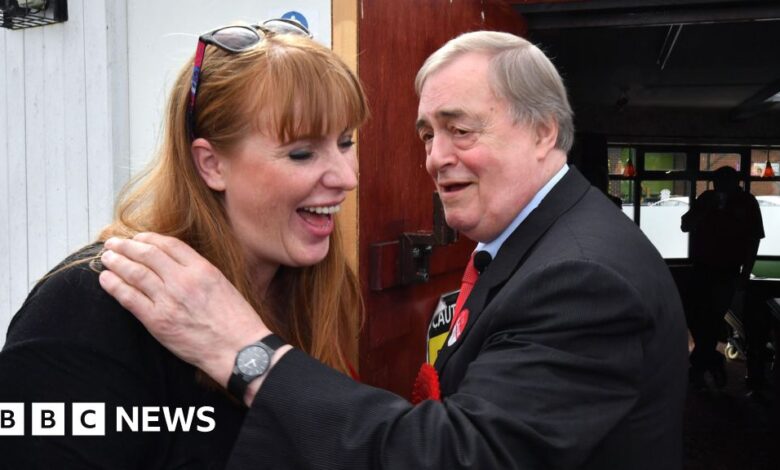How John Prescott blazed a trail for Angela Rayner

John Prescott, who has died aged 86, was a figurehead of New Labour, who was also instinctively sceptical of some of its instincts.
He was a bridgehead to Labour’s traditional working class roots who saw the value in, and indeed personified, championing the aspirations of the less well off.
His value to Tony Blair, who swept to a landslide victory in 1997 and went on to win two further elections with Prescott at his side, was that he could reassure and lead those within Labour sceptical of its movement towards the centre.
He was also a binding agent, skilled at holding the party and its sometimes warring factions together.
It is not hard to see the parallels between then and now, when we once again have a plain-speaking working class northerner as deputy prime minister to a polished North London lawyer.
Angela Rayner’s backstory – and approach to politics – have clear parallels with John Prescott, something Rayner herself has openly acknowledged.
Describing how she planned to do the job of deputy PM in 2022, she told LBC: “I’m going to be John Prescott in a skirt, I just say it how I see it.”
She added: “Me and John are good mates, we see each other quite frequently, and I definitely look better in a skirt.”
Speaking to broadcasters after news of his death, Rayner said he had been “a huge support to me ever since I came into politics”, offering the advice to “be authentically yourself and keep thinking about the people you’re there to represent”.
She added: “That’s what he always said to me, ‘you’ve got a voice kid, use it'”.
Both left school with few qualifications and worked their way up through the union movement, before entering politics.
And both were able to articulate the authentic instincts of Labour’s base of supporters, in a language, and style, they themselves would often use.
Prescott sometimes had an unconventional way of wooing voters, which on one famous occasion stretched to punching one of them.
And, in the 2020s, as the modern Labour Party sought to jump start its popularity, courting recent Conservative voters, it was Rayner who described some Tory ministers as “a bunch of scum” – remarks she later apologised for.
The old jibe that all politicians look and sound the same could never apply to Prescott or Rayner.
Social class is a key prism through which to reflect on Prescott’s career, politics and life.
For all the talk about how he was the authentic working class grit in the smooth, polished very middle class New Labour, that sense of his class – “bottom class” as he put it – and others was a huge part of how he saw himself, and how he saw others.
If you have a moment today, I recommend listening to this wonderful documentary on BBC Sounds – Prescott At Your Service – which tells the story of a 19-year-old John Prescott working as a waiter on an ocean liner to New Zealand, where the future deputy prime minister would serve the recently resigned former prime minister Anthony Eden.
Decades later, Tony Blair would reflect that Prescott’s own self image was an ever present in his daily interactions in government.
“He could smell out condescension, a slight, an air of superiority or a snub at a thousand paces; and at once smelt, he could charge after it with quite shocking abandon.”
John Prescott was the conduit between Labour’s past and its present.
He was, as well, the glue binding Tony Blair and Gordon Brown, whose pivotal but at times dysfunctional relationship defined the first decade of Labour’s stint in power between 1997 and 2010.
And he illustrated a path to the near pinnacle of power for those whose backgrounds still rarely lead to the top table of British politics.




